MANAGING THE ELITE
The entry of PAP lookalikes into Opposition ranks could be a symptom of atrophy of
non-partisan spaces.
When the PAP wins the 2011 General Elections, the margin could be a stunning success (for example, 86 seats to 1, with 68 percent of the votes) or a slap in the face (let’s say 75-12; with 55 percent). Either way, one agenda item is bound to feature in the PAP’s GE post-mortem. The ruling party would have to review how the Opposition managed to steal into the Establishment and poach so many PAP lookalikes.
In my previous blogs, I noted that this development could be an early sign of the fracturing of Singapore’s monolithic elite, which would amount to a major conundrum for the PAP’s fourth generation leadership. Instead of an undivided Establishment under one roof, overseen by the coterie of men at the apex of the PAP pyramid, an increasing minority will challenge the leaders’ authority.
This is as natural as the tendency among lions and gorillas for would-be alpha males to try to oust the incumbent, or else strike out on their own. It’s about the normalisation of Singapore politics after decades of depoliticisation, and there is little the PAP can do about it.
However, individuals who want to break free from the PAP chain of command can be nudged in one of two directions. They may challenge the leadership through PAP factions or opposition parties; or they can pursue their goals through independent non-partisan institutions within the state and civil society.
That decision is not predestined. Among members of the Establishment, oppositionists are generally not born but made. Ultimately, such individuals just want to make a difference. Whether they choose to do it through the PAP, the opposition, or in-between non-partisan institutions will depend partly on how the PAP manages political space.
Two scenarios
To illustrate this dynamic, imagine a politically engaged member of the Establishment; let’s call him Citizen Kan. Kan has received an elite education and opportunities that are beyond what ordinary Singaporeans can even imagine. He has worked within the public sector or other Establishment institutions. He has seen the system up close and is now convinced it needs to be reformed.
Kan does not believe it can be done within the PAP government because he thinks he’ll lose his autonomy if he’s sucked into heart of the system. He knows the personal cost of challenging the status quo, but he is willing to take the risk because he cares passionately about Singapore.
Now, picture two alternative scenarios facing Kan. In Scenario 1 – call it the “Broad Church” Establishment – there are consistent signals from the government that it welcomes an engaged citizenry and alternative views. While nobody loves to be criticised, the government does a pretty admirable job of showing grace under fire. In this scenario, independent interest groups are empowered to contribute to policy making: they are given access to information and opportunities for meaningful consultation. The bridges between the government and society are progressively widened. Institutions that maintain those bridges – the media, universities, think tanks – are constantly being strengthened and encouraged to exercise independent professional judgment.
In Scenario 2 – the “Narrow Base” Establishment – government rhetoric about an inclusive society does not apply to politics. The prevailing ethos is: if you are not for us you are against us. When non-partisan individuals and groups express independent views too forcefully or too often for the government’s comfort, they are treated as political opponents and marginalised. Unobstructed government is seen as crucial for good governance, so anything that slows executive decision making is labelled as a threat. More and more aspects of government policy are treated as fundamental to the country’s survival; questioning these is seen as tantamount to being anti-Singapore. As for organisations that serve as custodians of the spaces connecting state and society, the government keeps them on the straight and narrow by intervening in their operations and staff decisions, thus stymying their development into independent institutions.
There was a time when Citizen Kan would have felt that the Establishment was heading towards the Broad Church scenario. This was the early 1990s, at the height of the PAP’s “openness and consultation” makeover. The space for non-partisan voices was expanding, through major public feedback exercises to chart national directions, and new institutions such as the Institute of Policy Studies. Kan may have viewed such developments with a certain amount of skepticism. But he was not cynical, so he was prepared to give the government the benefit of the doubt. He did not feel it necessary to defect to the other side. The wider, non-partisan Establishment held enough promise as a space within which to engage national issues.
Times have changed. Today, Kan and people like him are more likely to characterise Singapore as coming closer to the Narrow Base scenario of polarised politics. Cynical about the effectiveness of independent spaces to shape national policy, most disaffected members of the Establishment would simply retreat, opting to privatise their lives. If, however, one remained committed to the idea of making a difference, what used to be unthinkable would suddenly be a serious option: challenging the PAP leadership in the electoral battlefield.
The experiment with openness
This gradual shift in emphasis from Broad Church to Narrow Base was probably triggered by the 1991 General Elections. In the PAP’s worst performance to date, it lost four seats and saw its share of the popular vote slip to a historic low of 61 percent. Significantly, this rebuff at the polls came soon after the government had declared its intention to open up, and on the heels of a major liberalisation of censorship rules. Deputy PM Ong Teng Cheong said in the 1991 GE post-mortem that the PAP was paying the price of neglecting conservative heartlanders and pandering to English-educated liberals.
From then on, it became harder for the Broad Church to flower. When the writer Catherine Lim was warned in 1994 that she would be treated as a political opponent on account of her critical commentaries, it signalled a resurgence of the Narrow Base tendency. Consultative processes continued, in the form of Singapore 21 and other projects, but the PAP became less apologetic about making decisions on behalf of the silent majority without hindrance from the vocal minority. By the late 1990s, mutual suspicion had set in, with government feeling that the chattering classes did not want to understand it, while critics believed officials had stopped listening.
In hindsight, one wonders if the PAP miscalculated after the 1991 GE disappointment. It is certainly true that openness and consultation was never going to be a major concern of the average voter. As much as many liberals hate to admit it, they are in the numerical minority; most Singaporeans are politically conservative and care much more about economic benefits than political rights. That much was correct in the PAP’s post-1991 calculation: if it narrowed the political space in order to govern decisively, this would not cost many votes, and might even gain some.
However, this solution focused only on the demand side of electoral politics: what voters wanted. A successful electoral formula would also need to address the supply side: the flow of electable candidates to the various parties. And the supply side is extremely sensitive to whether alternative points of view are embraced. By failing to build on the hopefulness of the early 1990s and polarising democratic space, the PAP may have unwittingly nudged individuals into the Opposition who would otherwise have been quite happy to contribute within the non-partisan middle ground.
Rising to the challenge
Of course, even if this diagnosis is correct, there is no clearcut prescription. Liberals would argue that the solution for the PAP is obvious: open up more space for independent-minded Singaporeans so that they are not lost to the Opposition. Others, however, would counter that such a strategy would just encourage the repoliticisation of the Establishment – better to give everyone a good scare, so that only an extremely small and brave minority would defect to the Opposition. Hardliners may also claim that those who join the Opposition are no great loss, or that they are motivated by less than noble impulses (which is bound to be true in some cases).
There is no telling how such a debate will be resolved within the PAP leadership, post-GE.
But in searching for the right path, the writings of one respected Singaporean social scientist may be illuminating. According to him, Singapore needed the kind of political stability found in mature democracies. The key lay in the Establishment or “power elite” – that “informed and articulate” 1 percent of society that gives “ballast, continuity and purpose”.
Writing in 1964, he said that the problem with Asian countries was that leadership was being left to polarised political parties. They needed to develop a non-partisan Establishment. Comprising “civil servants, the professionals, business leaders, trade union leaders, writers, the church, the universities, and so on”, this group “transcends political affiliations”, he said.
This call for a thriving non-partisan and independent Establishment did not come from some woolly academic, but rather PAP founding father Goh Keng Swee, writing in the 10th anniversary publication of the party.
He warned that while a democratic system was easy to run when the economy was expanding, the real test would come in a crisis. “I do not believe we will survive this test unless an effective and intelligent non-party leadership of public opinion emerges such as has been achieved in the established democracies.”
“When you talk of public opinion, it is really the opinion of this group that matters, for they set the pace for the indifferent and inarticulate 99 percent,” he went on. “Further, debate and discussion among the group goes on vigorously and continuously, in books, in newspapers, radio, TV, etc. It is by this free and open debate that agreement of basic ends, and purpose is achieved in substantial sphere of national affairs.”
In deciding future strategy for the PAP, its leaders could do worse than to heed this voice from its past.
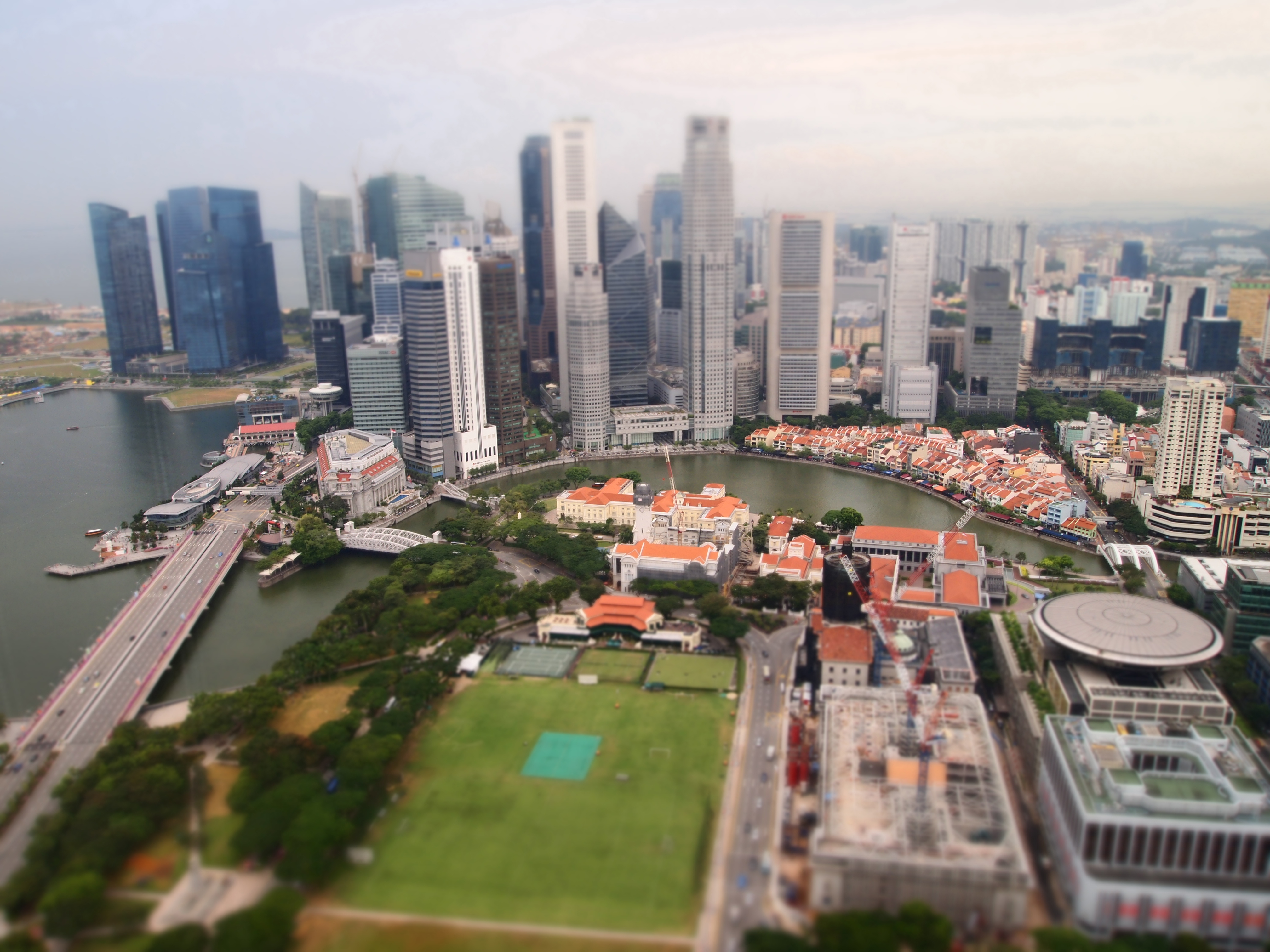

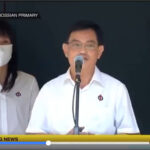

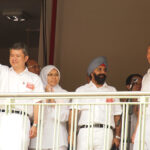
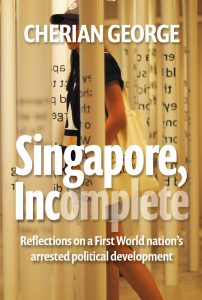
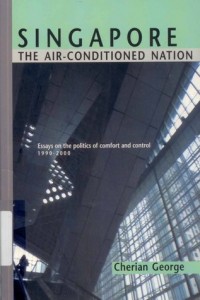
Comments are closed.